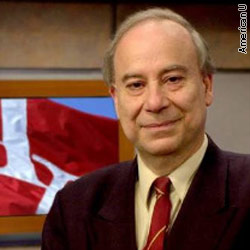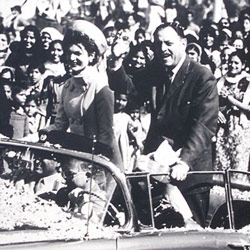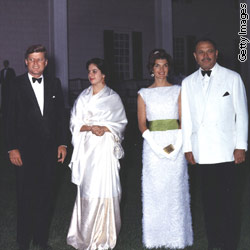
Ambassador Ahmed is currently the Ibn Khaldun Chair of Islamic Studies at American University. He was also the First Distinguished Chair of Middle East and Islamic Studies at the US Naval Academy in Annapolis, Md., and a Nonresident Senior Fellow at the Brookings Institution. He has taught at Princeton, Harvard, and Cambridge Universities and has advised General David Petraeus, the late Amb. Richard Holbrooke, and many US agencies on Islam and foreign policy.
A former Ambassador from Pakistan to the UK, Ahmed is also a playwright and the author of more than a dozen award-winning books, including “Discovering Islam,” which was the basis of the BBC six-part TV series called “Living Islam.” The BBC called him “the world’s leading authority on contemporary Islam.”
Earlier this May, his essay, “The Code of the Hills (It’s not Abbottabad the United States should be worried about)” was published by Foreignpolicy.com.
“Suspended Somewhere Between / A Book of Verse,” is his new collection of poems “that takes the reader from the forbidding valleys and mountains of Waziristan in the tribal areas of Pakistan to the think tanks and halls of power in Washington, D.C.”
Secretary of State Hillary Clinton made a surprise visit to Pakistan last week and said the U.S. will continue to work with the nation, but that it must make “decisive steps” against Islamic militants there. In your view, should a main US concern be the Haqqani network – which is affiliated with the Taliban? What objectives does that network have?
America needs to be concerned about the Haqqani network which is suspected of supporting Taliban activity. More important it needs to watch the general law and order situation in Pakistan. The establishment is in disarray, people in despair. The leaders don’t seem to have any vision or strategy.
Ordinary Pakistanis are fed up. They say, one day they are killed by a drone strike, the next by a suicide bomber, and then military action. They face real hardships – unemployment, shortage of electricity, and high prices. Worse the gap between the rich and ordinary Pakistanis has grown dangerously wide. Pakistanis see their leaders as corrupt and incompetent.
Secretary Clinton’s recent visit underlined the concerns about Pakistan. It is a key ally in America’s war in Afghanistan. And it is a critical time in the relationship.
What is preventing the Pakistan military from taking decisive steps against the Haqqani–or other militant groups? Can the military control militants with Pakistan, and does the military have the will to do so?
Tackling militancy in Pakistan cannot be left to the military alone. When Pakistan used the military to solve a political problem in East Pakistan in 1971, it lost its majority province (which became the new nation of Bangladesh). The military already has large numbers in the tribal areas and the situation is as bad as ever.
No, the matter is more complicated. As a former administrator in Pakistan, I believe the answer lies in establishing strong, clean, and efficient administration backed by an independent judiciary. Pakistanis must feel they can improve their lives without nepotism and corruption which are rife.
Unless ordinary Pakistanis feel that they can have justice and that they can lead a secure and hopeful life, militant groups will continue to have fresh recruits. I still await long term vision and strategy from Pakistan on how to deal with its tribal areas and how to control the law and order collapse.
I am working on a new study called “Showdown inWaziristan: 9/11 and its consequences for Muslim tribal societies.”
Recently, the Pakistan Taliban attacked a naval base in Karachi—between 10 – 15 militants somehow got onto the base with weapons, destroyed two airplanes and killed 12 security officers. This is a base that may be a nuclear weapons site, according to a Pakistani newspaper. The Taliban said the siege was conducted in revenge for the killing of Osama bin Laden.
Has the Pakistan military explained how the Taliban could infiltrate the base?
Bloody events that have killed and injured hundreds of Pakistanis after Bin Laden’s killing have plunged the nation into fierce debates reflecting deep crisis. They feel if the army cannot protect them, who can?
Conspiracy theories are widespread. Pakistanis look for the “American”, “Indian”, or “Israeli” hand every time there is a breakdown of law and order. Now they are confronted face to face with the undeniable – these murderers who have killed and maimed Pakistanis are themselves Pakistanis.
Americans don’t know that the Taliban have openly declared that their number one enemy is not America but Pakistan. Pakistanis point out that between 30-40,000 Pakistanis have died since 9/11 although they had nothing to do with the terrorists who were responsible.
The Taliban are at war on two fronts—in Afghanistan against NATO and in Pakistan against the state. The muddled strategy of ALL the state players has created mass scale disruption and despair among Afghans and Pakistanis.
From your point of view, is the relationship between the United States and Pakistan getter better or more strained? Do you feel that U.S. drone attacks into Pakistan are necessary?
According to military experts like David Kilcullen (author and consultant on counterinsurgency and counterterrorism), drone strikes have a very limited use killing a tiny fraction of the intended target. Most of those killed are innocent women and children. Apart from Pakistani leaders who don’t particularly care for these innocent fellow citizens in the tribal areas, most Pakistanis are infuriated by these strikes. They have also become a symbol of America violating Pakistan’s national sovereignty and feed into the anger.
The relationship between the US and Pakistanis going through a very bad patch but I believe it will survive. Both administrations know the importance of each to the other.
Unfortunately there is growing anger and antipathy in both publics. Americans believe that Pakistanis have been duplicitous or incompetent in their dealings with the militants. Pakistanis blame the Americans for everything under the sun.
This is literally true. When the devastating floods destroyed millions of homes, Pakistanis believed they were engineered by the Americans. When the civilian plane crashed outside Islamabad killing all on board, Pakistanis believed Americans were behind it and aiming to fly it into the nuclear reactors.

Both the American and Pakistani public need to know that this was not always the case. Take a look at the picture of Jackie Kennedy in Lahore in 1962 (left). Looking elegant and serene, she is standing alongside the President of Pakistan in an open car. She is surrounded by smiling Pakistanis throwing flower petals.
Today no American could travel in an open car anywhere in Pakistan. A year earlier, the Pakistani President was hosted by the Kennedys at an unprecedented state dinner at Mt.Vernon. (Photo below left.)

New York gave him a ticker tape parade and a joint session of Congress a standing ovation. Today the Pakistani President can’t dream of this reception.
According to The Christian Science Monitor, since 2002, the United States has provided $20.7 billion to Pakistan. What is the U.S. getting this aid and how important is it?
America has always been a very generous ally. Unfortunately much of the aid to Afghanistan and Pakistan has gone into a black hole. The leaders in both countries have made palatial houses for themselves and have large bank balances as a result. Too few ordinary people benefit from it. In any case, Pakistanis will argue that the aid has gone largely for military operations which have made Pakistan into a “client state”.
The US in turn has gained from the alliance with Pakistan. It could not have conducted operations in Afghanistan without it. It needs Pakistan’s military and intelligence support, and also the land routes for NATO supplies.
Even when American troops finally come back from Afghanistan, Pakistan will remain of importance. It is a country of 180 million people. It is the only nuclear Muslim nation. Its geo-political situation will always make it an important country – neighboring as it does China, India, Afghanistan, and Iran.
Also, a fact often overlooked, its founder, M.A. Jinnah, had a vision of a modern Muslim state based in democracy, human rights, women’s rights, minority rights and respect for the constitution. (See my book Jinnah, Pakistan and Islamic Identity, 2002).
An idea of democracy is part of the Pakistani DNA and should be encouraged. Besides, there are hundreds of thousands of American citizens of Pakistani origin. The Associations of Pakistani Physicians has some 12,000 members. These Pakistanis are a natural bridge between the two countries.
When you look at the situation now in Pakistan and Afghanistan, what else should President Obama be doing?
President Obama needs to pay more attention to the long term relationship with Pakistan. He has an instinctive understanding of its culture. He spent some time there as a youth with his mother. He also had Pakistani friends as a young man.
But his actions as president even provoked the generally pro-American former president, Pervez Musharraf, to call them “irresponsible” and “arrogant”.
Obama needs to take symbolic and substantive action. He needs to make an effort on two fronts: explain the importance of a long term relationship to his home audience and thus counter the negative publicity around Pakistan.
To Pakistanis he must appear a trusted ally. Pakistanis are acutely aware that Obama appears to have tilted far too much towards India– a factor that always plays in Pakistani minds. It is well to keep the South Asian context in mind. India and Pakistan have had three wars. Things are thankfully quiet between them now but could escalate without warning at any time. Pakistanis complain that while Obama has been to India he has ignored Pakistan which is a key ally.
Obama could also change the nature of the aid to Afghanistan and Pakistan. So far American money has largely disappeared, as I said, into a black hole. After billions of dollars of taxpayers’ money – at a time when America itself is in debt – there is still virulent anti-American sentiment in both countries. Intelligent use of aid will satisfy both the American tax payer and serve Afghans and Pakistanis better.
Every Afghan and Pakistani parent wants nothing more than to educate their children. It is an Islamic duty and parents believe in it passionately. I propose a study be made of educational institutions like Forman Christian College in Lahore. It was run – and still is – by Presbyterian teachers when I studied there in the 1960s. The college has produced several presidents and numerous parliamentarians and scholars. Every Formanite I have met remains grateful—as proud Muslims and Pakistanis. I am sure if colleges like this were spread throughout Pakistan and ordinary Pakistanis had access to them the direction of the next generation could change.
Obama should also stress the need to reform the madrassah system. New syllabi, teachers training programs, technology, seminars, field-trips would help change the mindset. In spite of the controversy around the madrassahs, they still continue to produce a steady stream of students with too narrow an understanding of Islam. There is cause and effect. Yet the emphasis among the leaders in the US, Afghanistan and Pakistan is on military solutions. These have already failed.
So my advice to Obama: think long term and act holistic. For the leaders of Afghanistan and Pakistan–a frown and a lecture to remind them of their duties. For the ordinary people of Pakistan, already reaching breaking point, that famous Obama smile will be seen as a friend’s gesture of comfort.
Obama needs to remind Pakistan to honor the vision of its own founding father. It may challenge Pakistani leaders to snap out of their stupor and pull back from the brink.
